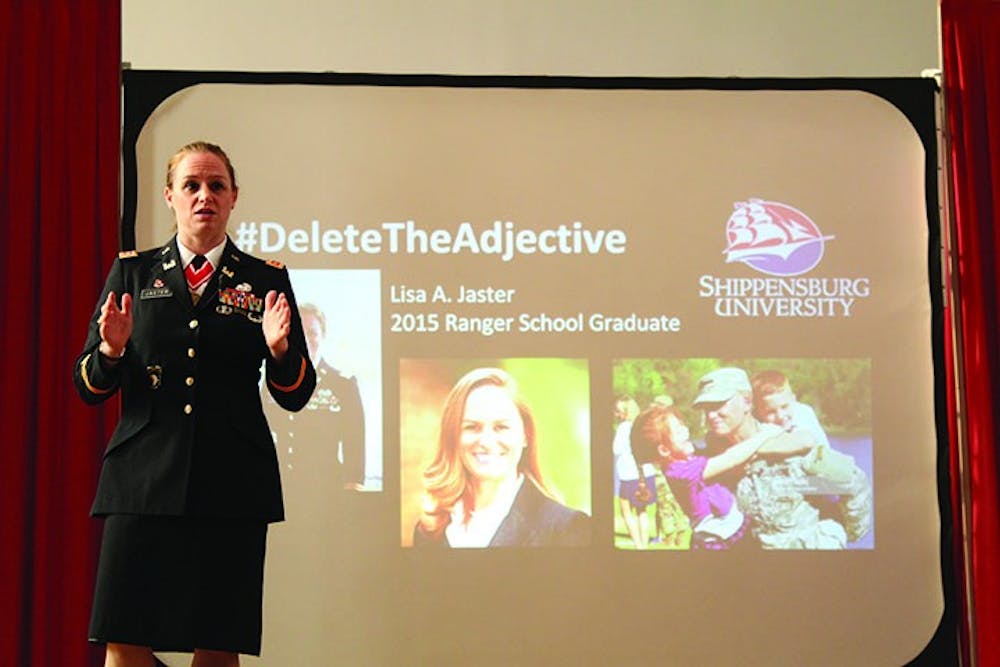Shippensburg University’s Old Main Chapel was filled to near capacity as students and members of the community gathered to celebrate the beginning of Women’s History Month and listen to guest speaker Army Maj. Lisa Jaster on Thursday.
Jaster became the first female Army reservist to complete the Army’s ranger school in 2015. Jaster described ranger school as the Army’s premiere leadership school, which until 2014 only enrolled men.
Jaster explained why the exclusion of women from ranger school bothered her.
“I’m a leader, but I’m not allowed to even try to go to the Army’s premiere leadership school. I don’t understand that.”
At the time of the Army’s policy change to allow women to attend ranger school, Jaster said she did not feel the urge to attend. At the time, she was in her mid-30s and working for Shell Oil as an engineer, as well as raising her children. She said she felt secure in life and did not need anything else.
Jaster knew she was a leader, and felt confident that she possessed the physical capabilities to complete the grueling training of ranger school. After encouragement from her former sergeant major, family and Facebook friends, Jaster decided to pursue ranger school.
Between 2011 and 2015, the graduation rate for ranger school was 40.5 percent, with 31 percent of participants repeating at least one phase of the program.
The average work day was 19.5 hours, and participants averaged two meals per day. Ranger school participants averaged nearly 3.5 miles traveled a day while carrying about 75 pounds in their rucksacks, Jaster said.
After more than 180 days, Jaster completed her Army ranger training, becoming the third woman and the first female Army reservist to complete the training.
In her role as a public speaker, Jaster has popularized the saying, “Delete the adjective.” Jaster hopes for people to be measured by what they bring to the table, and laments the use of backhanded compliments like “strong for a woman” or “smart for my age.”
“Maybe these adjectives, maybe these parameters we put on people are limiting what we allow them to do,” she said. “You can’t judge me by those adjectives, you’ve got to go ahead and sit down and look at what I bring to the fight. And the chances are when you do that, you actually grow and build a diverse community.”


The Slate welcomes thoughtful discussion on all of our stories, but please keep comments civil and on-topic. Read our full guidelines here.